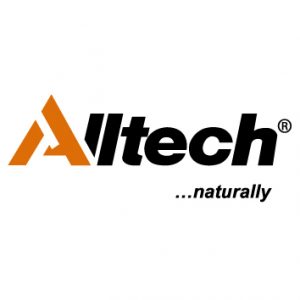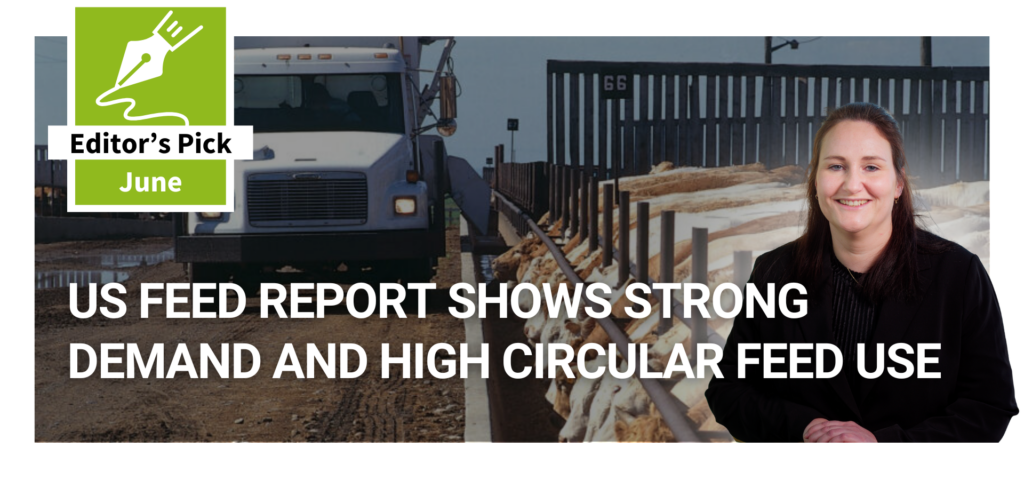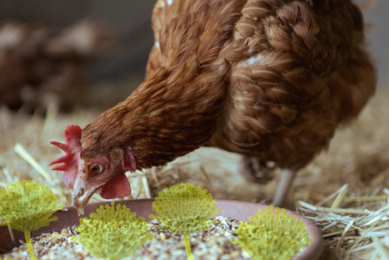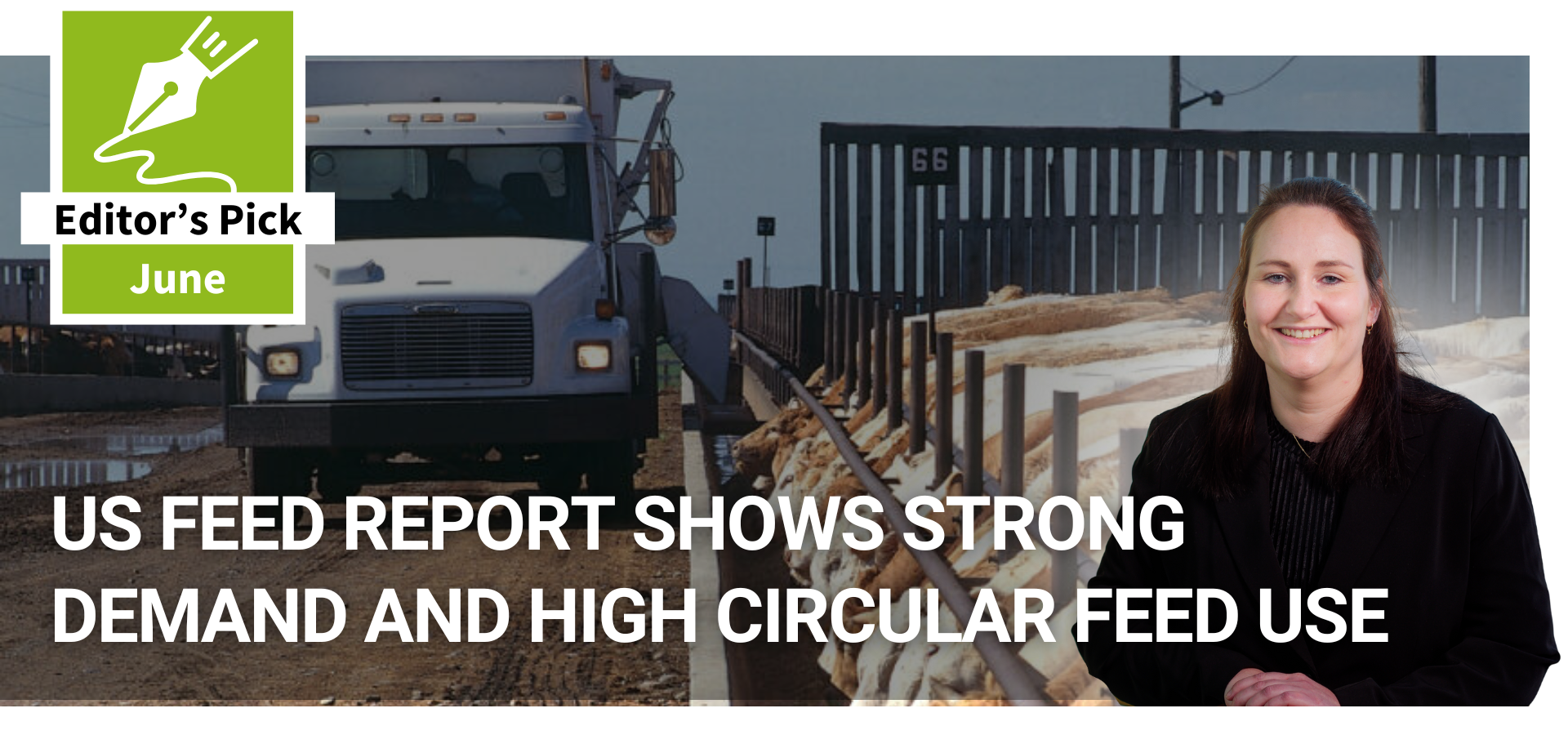A monogastric meta-analysis: Findings and insights
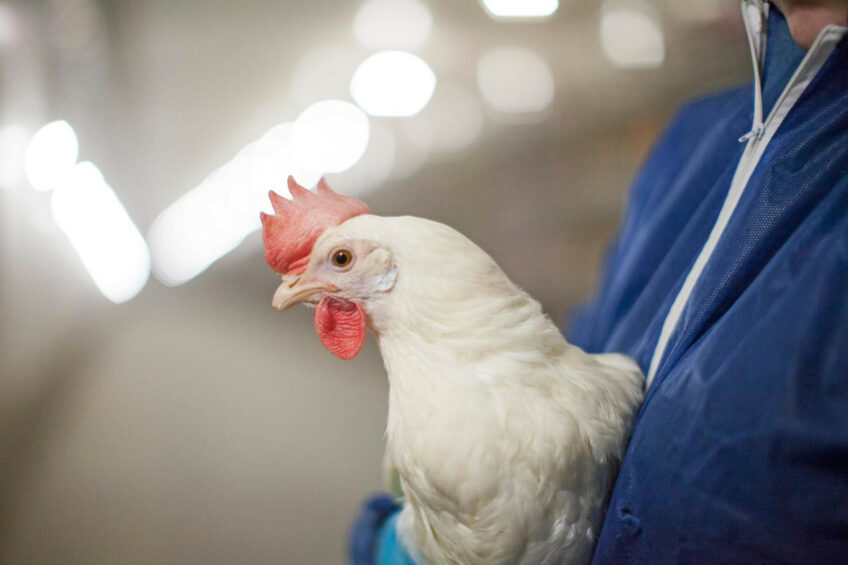
Drawing conclusions on mycotoxin management for monogastric animals through meta-analysis research
Despite the best efforts of the agricultural industry to reduce the presence of mycotoxins in the feed supply chain, mycotoxins are ubiquitous toxic compounds in feedstuffs globally. Under favourable environmental conditions, fungi can naturally produce mycotoxins on crops pre-harvest, post-harvest, or during storage of ingredients and final feeds.
The presence of these mycotoxin compounds in rations can lead to a number of negative effects on animal health and performance. Collectively, these effects may impact farm productivity and profitability.
Although there are several methods that can be used to reduce mycotoxin risk, such as adequate testing of incoming ingredients followed by rejection or segregation of those found to be contaminated, one of the most direct methods is through the inclusion of mycotoxin adsorbent materials such as yeast cell wall extract (YCWE, Mycosorb A+, Alltech, Inc.).
Figure 1 – Results show an increase in egg production and egg weight when including yeast cell wall extract in the diet of laying hens.
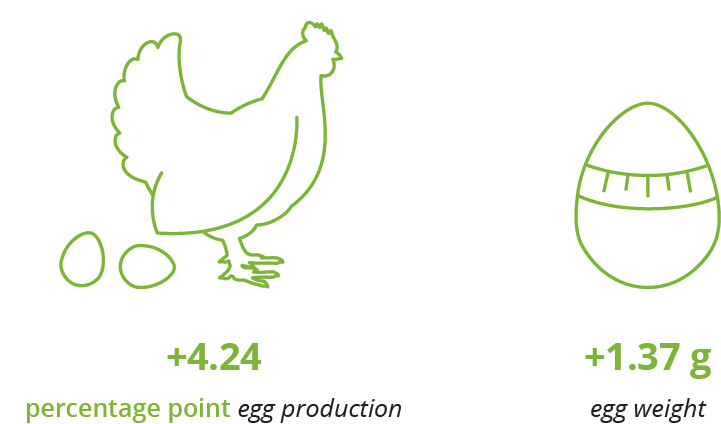
Numerous papers have shown the benefits of using yeast cell wall extract in a variety of animal species, but it can be challenging to draw a conclusion from a large body of research. To simplify the research and generate an overall conclusion, a meta-analysis approach can be used. By conducting a meta-analysis, which pools data from multiple independent studies, a statistical and comprehensive overview on mycotoxin impacts and the effectiveness of YCWE in mitigating mycotoxin challenges can be generated.
In light of the benefits of this approach, 3 recent meta-analyses have been published to assess mycotoxin risk and mitigation with YCWE. These 3 analyses, which focus on broilers, laying hens and growing pigs, collectively cover a total of 56 research trials (79 mycotoxin treatments and 99 YCWE treatments) and 15,246 animals.
Figure 2 – It was shown that the use of YCWE lowered the carbon footprint by an estimated 25 tonnes CO2-eq. This is equivalent to a savings of 30 round-trip transatlantic flights or the annual usage of 17 cars.

When looking at the mycotoxin challenge alone, each meta-analysis shows that mycotoxins can have significant negative effects on animal performance and health. In particular, lower growth rates and poor feed conversion rates were observed in the studies, along with increased mortality rates and lower egg production when mycotoxins were consumed. These effects were noted even when mycotoxins were consumed by the animals at lower concentrations, including below regulatory guideline limits.
Conversely, some notable effects could be observed in the meta-analyses when YCWE was included during the mycotoxin challenges:
- Performance. When YCWE was included, the data showed a collective improvement in performance indices. Improvements in average daily gain and feed conversion were noted for growing animals, while an increase in egg production and egg weight was shown for laying hens.
- Liveability. The mortality rate was assessed for broiler chickens. Research showed that when YCWE was included while the birds were also consuming mycotoxins, the mortality rate was reduced.
- Sustainability. To understand whether mycotoxins and YCWE play a role in the sustainability of production, the CO2 equivalent (CO2-eq) was calculated for broilers using results from the meta-analysis. It was shown that while a mycotoxin-contaminated diet increased the carbon footprint over control-fed animals by an estimated 47 tonnes CO2-eq, the use of YCWE reduced this by an estimated 25 tonnes compared to feeding mycotoxins alone. This is equivalent to a savings of 30 round-trip transatlantic flights (New York to London), or the annual use of 17 cars in the United Kingdom.
- Profitability. Through improvements in feed efficiency, performance and livability, YCWE use could lead to overall profitability and a positive return on investment (ROI). For example, in the most recently published meta-analysis with laying hens, a positive ROI of 4.65:1 was calculated over a wide range of mycotoxin challenge levels.
In conclusion, the persistent challenge of mycotoxin contamination in animal feed necessitates comprehensive and effective management strategies to ensure animal health, farm productivity and profitability. The meta-analysis approach, as demonstrated in recent studies on broilers, laying hens and growing pigs, provides a robust framework for evaluating the efficacy of mycotoxin mitigation strategies, such as the inclusion of YCWE.
These analyses highlight the significant adverse effects of mycotoxins on animal performance, including reductions in growth rates, feed conversion efficiency and egg production, as well as increased mortality rates, even at lower mycotoxin concentrations.
Incorporating YCWE in animal diets during mycotoxin challenges has demonstrated promising results, including improved performance indices, reduced mortality rates, and enhanced sustainability by reducing the carbon footprint. The positive return on investment, which is particularly evident in laying hens with an ROI of 4.65:1, underscores the economic benefits of YCWE.
These findings strongly support the use of YCWE in mycotoxin management, offering a viable solution to mitigate the negative impacts of mycotoxins on animal health and performance. The extensive research behind these meta-analyses empowers those in agriculture and animal production to make informed decisions about mycotoxin management, ultimately improving animal welfare and sustainability.


